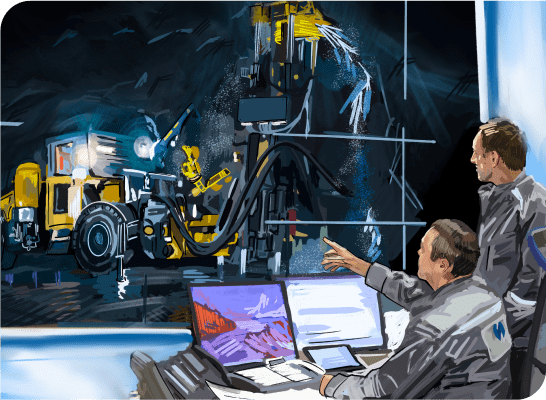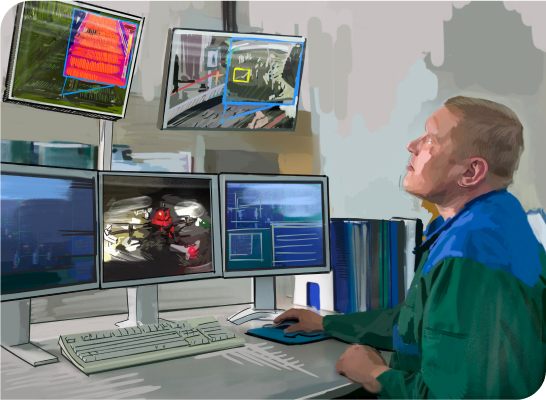







От 5-летнего планирования
Смотрите в нашем Годовом отчете за 2018 год раздел
Стратегические приоритеты
Стратегические приоритеты

К долгосрочной стратегической концепции на 10 лет
 ВЛАДИМИР ПОТАНИН, Президент ПАО «ГМК «Норильский никель»Четкая реализация нашей стратегии в последние шесть лет, а также благоприятные тренды на сырьевых рынках помогли нам обеспечить один из самых высоких в отрасли уровней доходности для акционеров. Теперь пришло время сделать следующий шаг для достижения еще более амбициозных задач как в плане роста бизнеса, так и в плане решения экологических проблем.
ВЛАДИМИР ПОТАНИН, Президент ПАО «ГМК «Норильский никель»Четкая реализация нашей стратегии в последние шесть лет, а также благоприятные тренды на сырьевых рынках помогли нам обеспечить один из самых высоких в отрасли уровней доходности для акционеров. Теперь пришло время сделать следующий шаг для достижения еще более амбициозных задач как в плане роста бизнеса, так и в плане решения экологических проблем.
От соблюдения экологических норм
Смотрите в нашем Годовом отчете за 2018 год раздел
Система экологического менеджмента
Система экологического менеджмента

К комплексной политике по обеспечению «устойчивого будущего» в регионах присутствия компании
Смотрите раздел Экология
МИССИЯ
Эффективно используя природные ресурсы и акционерный капитал, мы обеспечиваем человечество цветными металлами, которые делают мир надежнее и помогают воплощать надежды людей на развитие и технологический прогресс
От поставщика ресурсов

К движущей силе глобального перехода на экологически чистый транспорт
ОСНОВНЫЕ ТЕНДЕНЦИИ НА РЫНКЕ ПАЛЛАДИЯ
2019 год: очередной год роста котировок палладия, связанный с устойчивым увеличением потребления в автомобильной промышленности на фоне ужесточения экологических стандартов по всему миру. Дефицит был компенсирован за счет роста первичного производства и увеличения сбора ломов автомобильных катализаторов, тогда как поставки из ранее накопленных запасов значительно сократились.
Подробнее в разделе Обзор рынка металлов
К распределению капитала обеспечивающему рост при сохранении лидирующих в отрасли показателей
Смотрите раздел Основные инвестиционные проекты
Важнейший вклад в глобальную повестку устойчивого развития: поддержание перехода на экологически чистый транспорт
Смотрите раздел Комплексная экологическая программа
К 2030 году компания сможет поставлять на мировой рынок объемы МПГ, достаточные для производства
автокатализаторов
Рост производства высококачественного никеля позволит изготавливать
аккумуляторных блоков для электромобилей

«Норникель» является ведущей компанией в российской горно-металлургической отрасли и крупнейшим мировым производителем палладия и высокосортного никеля, а также крупным производителем платины и меди. «Норникель» также производит кобальт, родий, серебро, золото, иридий, рутений, селен, теллур и серу.
ДЛЯ ЧЕГО МЫ
ЭТО ДЕЛАЕМ
ЭТО ДЕЛАЕМ

Смотрите наш кейс Техпрорыв

Смотрите наш кейс Цифровая лаборатория

Смотрите наш кейс Follow Up Siberia




